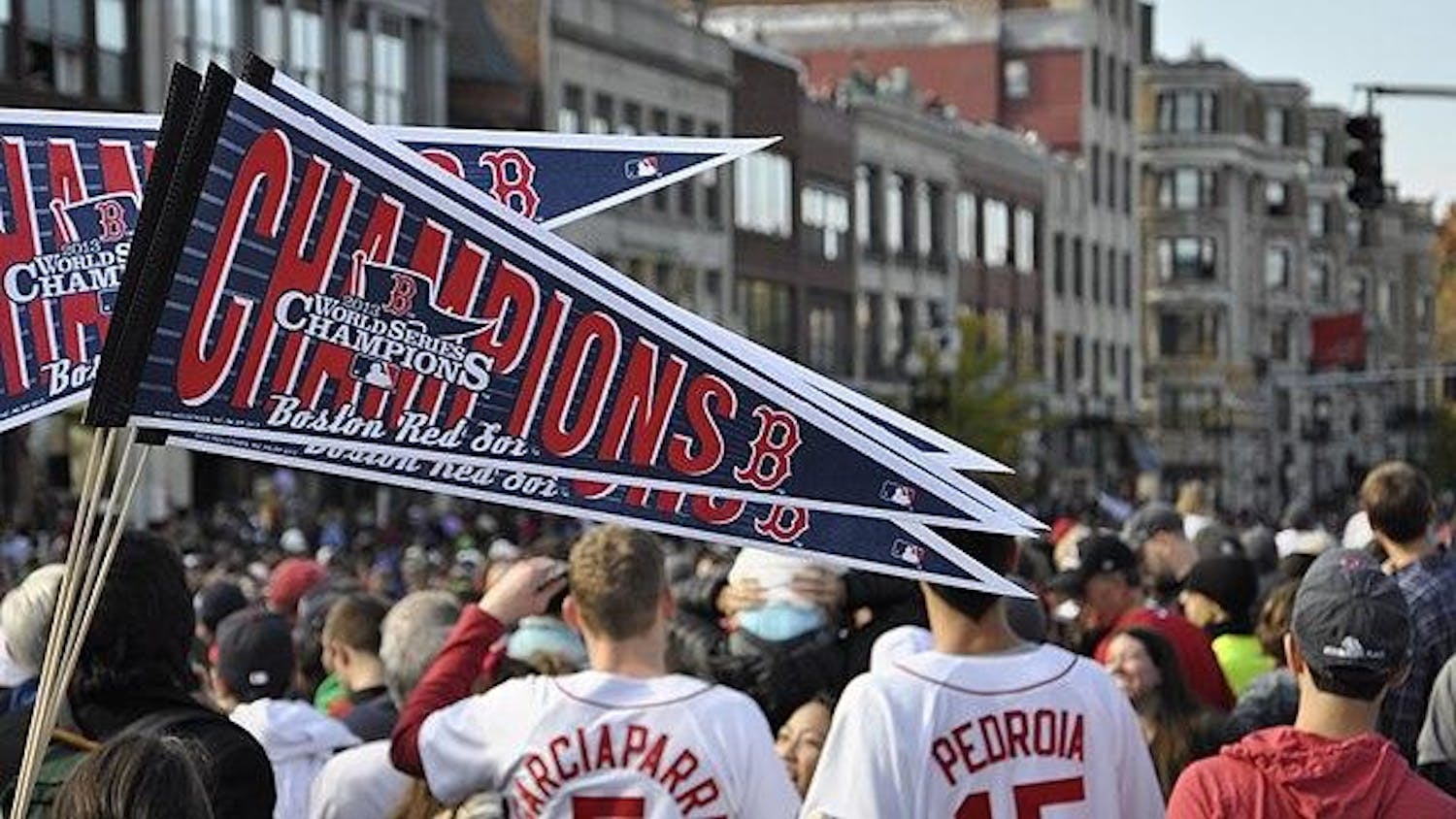The Boston Marathon is supposed to occur only once a year. But for many in the region, it’s a marathon to get to school or work on time every single day. Boston is facing an identity crisis: is it a global city with ample night life opportunities or a New England town shutting down the MBTA before midnight? In many respects, Boston’s identity is based upon its backbone — its outdated, stressed transportation infrastructure.
Boston has many narrow and convoluted roads, designed prior to the prevalence of the automobile. To add a bike lane, add a bus lane or expand the sidewalk with plants, benches, lighting, bike backs and bus shelters is particularly challenging. However, narrow roads in European cities are far more bike-friendly, so it is certainly possible to redesign, if the will is present. In Amsterdam, a city with more canals than Venice, it's easier to bike than it is to drive.
Streets should not only be about moving cars quickly. They should move people, bikes and rapid transit as well without hurting vehicle throughput, improve safety and create public spaces to live, work and play.
In many ways, our country has become more disconnected. Our politics are polarized, our communities are segregated and our very lives are lonelier. According to Robert Putnam's "Bowling Alone," we connect with our family, friends, neighbors and democratic structures far less often because of changes in work, family structure, age, suburban life, television, computers and women’s roles. Intersecting all of these factors is urban design. Rethinking our roads, which are the vast majority of our public spaces, can help us reconnect our lives through more choices for transit. Our roads do not only need asphalt; they need narratives.
However, the United States is unwilling to pay for good public transportation, even though the quality of infrastructure is directly linked to the country’s competitiveness, as it improves quality of life and makes businesses more productive. The World Economic Forum now ranks the United States 16th for infrastructure quality, behind France and Spain, a place that increases accidents and inefficiencies and costs individuals and companies hefty sums of money. And all of that added commuting time takes a huge toll on our bodies, minds and spirits.
Because American polarization is often split between liberal urban and conservative suburban interests, with race and racism playing a role, funding public transportation in the United States is often a partisan issue that is largely irrelevant in other countries. Even in liberal Massachusetts, the MBTA is woefully underfunded, partly also because citizens recall the waste, fraud and abuse of the Big Dig, creating distrust in the government to handle their money.
This is a valid concern, considering that the Green Line Extension project is $1 billion over budget. Meanwhile, the Toei Oedo Line in Japan cost $560 million per mile, the Berlin U55 cost $400 million per mile, the Paris Metro Line 14 cost $368 million per mile and the Jubilee Line of the London Underground cost $700 million per mile. In New York, the Second Avenue Subway costs $2.3 billion per mile.
The United States has a transportation cost problem, and until that is solved, commuting in Boston will be a lot like running a marathon.
More from The Tufts Daily
The greatest sports town in America, if not the world
By
Ben Lable
| January 30
Worth Going Broke?: Hot or cold?
By
Eloise Bernstein
| January 30
Moments ‘til Madness: The season of the first-year
By
Owen Short
| January 28





